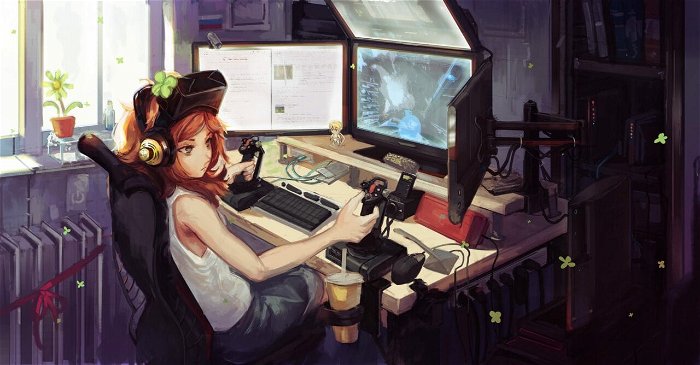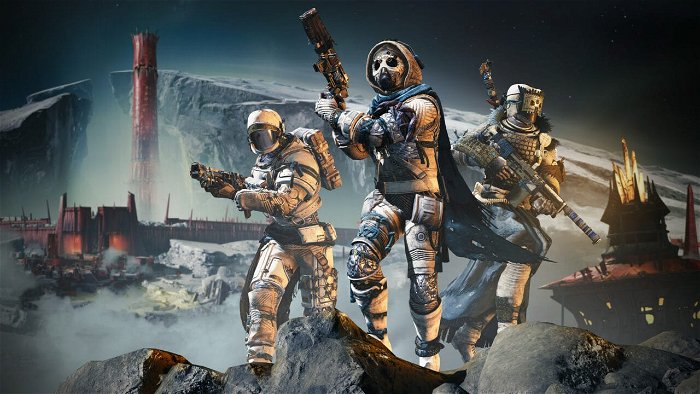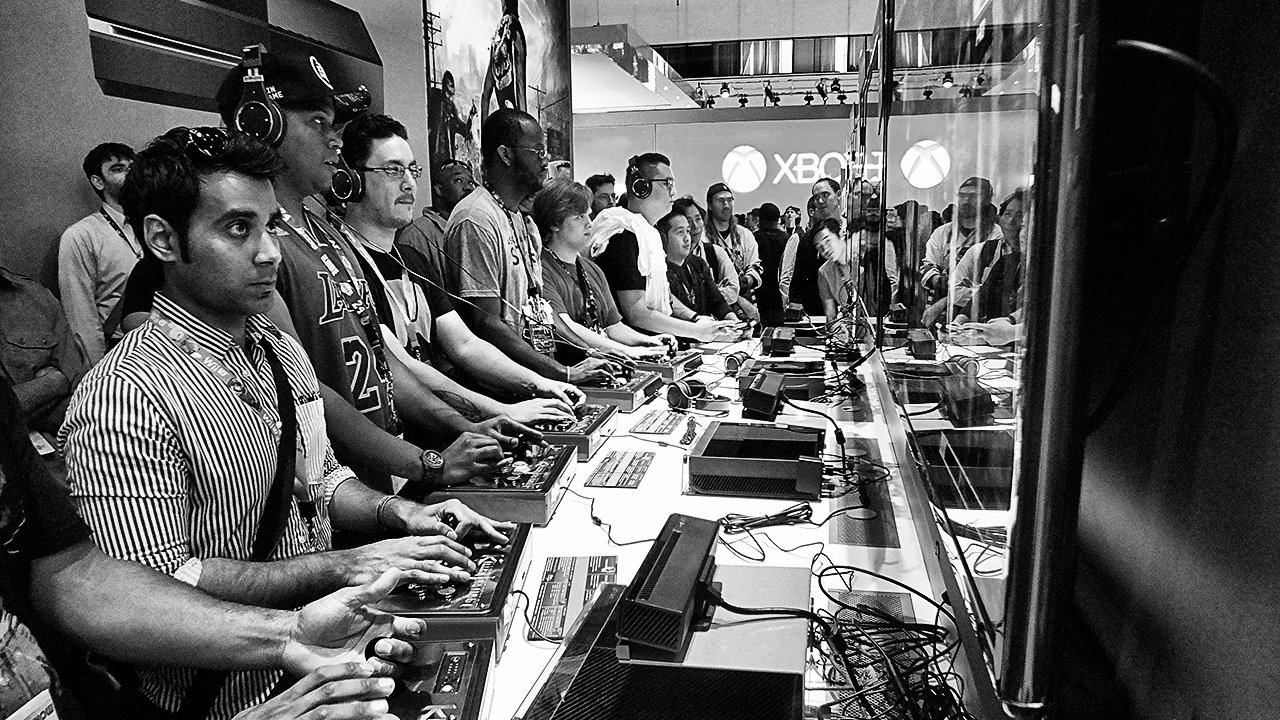Over the last couple of weeks a huge kerfuffle has blown through the gaming community and it’s taken on many names, finally settling, it seems, on “GamerGate,” since that’s the least accusatory term, and doesn’t involve personal defamation of anyone in particular. The most amazing thing about GamerGate is how it has ignited so many disconnected agendas into one confusing ball of Internet hostility that has pitted the gamers against the field of game journalism, and even created friction and in-fighting within these camps themselves.
However, it’s also brought to light a very sad fact; when gamers and game journalists faced their first real moral crisis together, they failed to rise to the occasion, and both groups lose out because of that.
Maybe that rift, that hostility has been quietly boiling just under the surface, waiting to come out and GamerGate was the weak link in a dam that finally caused everything to burst. Whatever the case is, what started out as blog confession by an emotionally distraught ex-boyfriend eventually turned into gamers examining the journalists and media outlets they read, questioning their ethics.
And here’s where the first failure happened. The media outlets, which normally doggedly pursued any story in the game industry, regularly threw up speculation and rumor as stories worthy of coverage, suddenly found the same accusations, speculations and rumor mongering being directed at them.
And they closed ranks and decided not to address the issue, or even acknowledge it existed.
This might have blown over as some had hoped, had the “Barbara Streisand” effect not kicked in. If no one pays attention to a situation, there’s a chance it’ll go away. Unfortunately, the very act of Zoe Quinn and/or interested parties actively trying to suppress certain groups and information merely drew attention to what was going. When the media outlets once again decided to not cover this, it raised some very provocative questions with the readers. Why, after all, would media outlets that normally find almost any morsel of game-related news, no matter how trivial, worthy of subjecting to the microscope, until that same microscope was directed—perhaps negatively—at them?
“The possibility for an actual, rational discussion about the relationship and responsibility of game journalist to gamers was sidelined in favor of screaming about whether people were metaphorical rapists or sexist, Neanderthal pigs.”
And this is where gamers became angry, and it was not entirely unjustified. There was a feeling that hypocrisy was in the air, that the ethics of journalism and finding out the truth were sacred… unless they were focused on journalism itself. It smacked of corruption, and even though the original brush fire was centered on the personal infidelities of one indie game developer, it turned into a full blown conflagration when the possibility that journalists had compromised themselves—and their trade—surfaced. Gamers got angry. They wanted answers from the people that usually provided answers and they didn’t get any. Instead, they got either a wall of silence, or in some less ideal circumstances, they were actively dismissed or insulted by either game journalists or indie game developers themselves.
This is where things really go off the rails. What should have stayed focused on legitimate concerns about the ethics of game journalism somehow turned into a classic—and pointless—battle of gender politics. Journalistic integrity was sidelined in favour of the hot button topic of the treatment of women in the games industry and both the extreme misogynists and rabid social justice warriors clashed on forums, comment boards on game media websites and, most spectacularly of all, Twitter. The possibility for an actual, rational discussion about the relationship and responsibility of game journalist to gamers was sidelined in favor of screaming about whether people were metaphorical rapists or sexist, Neanderthal pigs.
At this point, this is where some gamers, the sort most people are NOT proud of, really failed their own community. In the same way that a corrupt Christian televangelist ruins the reputation of an entire faith, or a terrorist unfairly paints a perception of the entire Islamic religion, gamers all got lumped into the “oppressive sexist” camp when death threats, rape threats, online harassment and all other manner of anonymous, online persecution forced people like feminist Anita Sarkeesian out of her own home. Suddenly, it wasn’t few crackpots pretending to be Big Man On Campus thanks to the protection of Internet Anonymity; it was “You people. You gamers,” and the ones that were making these accusations were sometimes game journalists and indie game developers.

The three groups that had come together out of a common love for games, had now turned on each other, and accusations were flying about how horrible, unethical or misogynistic each group was. Prominent indie game developers abandoned the field—loudly and sourly—and they didn’t single out a few extremists, they pointed their fingers at the entire gaming community. Journalists who had faithfully reported to thousands of readers everyday took to twitter to call them idiots and accuse them of abusing the term “social justice warrior.” Individuals were no longer responsible for isolated acts of harassment or unprofessionalism; the entire group was.
It got to the point where even celebrities couldn’t escape the negative feedback loop that got bigger and bigger as Twitter arguments escalated. Adam Baldwin and comic writing sensation Gail Simone have even stepped into the fray and have spoken their mind about the growing controversy, but it’s becoming clear that hostilities aren’t going to stop and a lot of damage has been done.
“What should be happening is that we, all of us, realize that this is about the makers of games, the audience for games, and the critics for games, all getting caught up in different reasons to attack each other..”
For most normal, rational people and gamers, there’s a lot of sound and fury over something they are only peripherally aware of. There was a scandal, something about game journalism being compromised, something about the games industry being misogynistic, and then it’s time to drop heads under the radar and get back to playing Destiny. And in some ways, perhaps that’s a more preferable response. These types of gamers are people interested in the games and little else. They’re not the game journalists attacking their readers en masse, screaming on Twitter, “No one deserves to be oppressed and I’ll make every single one of you change your minds and agree with me, because your opinion, if contrary to mine, is flat out wrong.”
These also aren’t the same people that are doxing certain developers, or even driving women out of their homes with death threats and other harassment. But these gamers are still being caught in the middle of this futile, political posturing because human nature has taken the argument out of the realm of conflict of ideas, and right back to the stone-age “Us Versus Them” rivalry that’s caused so much trouble over the course of our history. Game journalists should not be taking the stance that the majority of people they are writing for are sexist Neanderthals undeserving even of contempt. If that’s what you think of your audience, you should probably find another sphere of interest with a “better class” of people. And gamers should be playing games, encouraging other people to play games, and sharing the games—and enthusiasm for the medium—with everyone around them. They should not be threatening rape or murder “in the name of gamers.”

The situation as it is now is that different groups are using different agendas, whether its sexual equality, sexual oppression, or unethical professional behavior, as a political club to justify attacks, derision or insulting other groups without fear of censure. It is the online/social media equivalent of a WWII FPS where the player shoots Nazis to avoid the usual guilt about opening fire on other people and can, in fact, feel good about inflicting the violence. Now, instead of condemning the use of insults and harassments, people are rallying behind “causes” to excuse what would normally be considered inappropriate, mean-spirited actions that only jerks perform.
It’s not cool when journalists do it. It’s not cool when developers do it. It’s not cool when gamers do it.
What should be happening is that we, all of us, realize that this is about the makers of games, the audience for games, and the critics for games, all getting caught up in different reasons to attack each other, rather than concentrating on what brought us all together in the first place; the games.
We can still get back to that place, and we can even make some progress doing it. Some media outlets already have, to varying degrees; re-examining and even explaining to readers their own system of ethics or editorial policies. Others have stood against the collective persecution of gamers, or the death and rape threats against prominent females in the industry.
Things are happening, but it’s going to take all of us to get out of the mess. Just like it took all of us to get into it.




